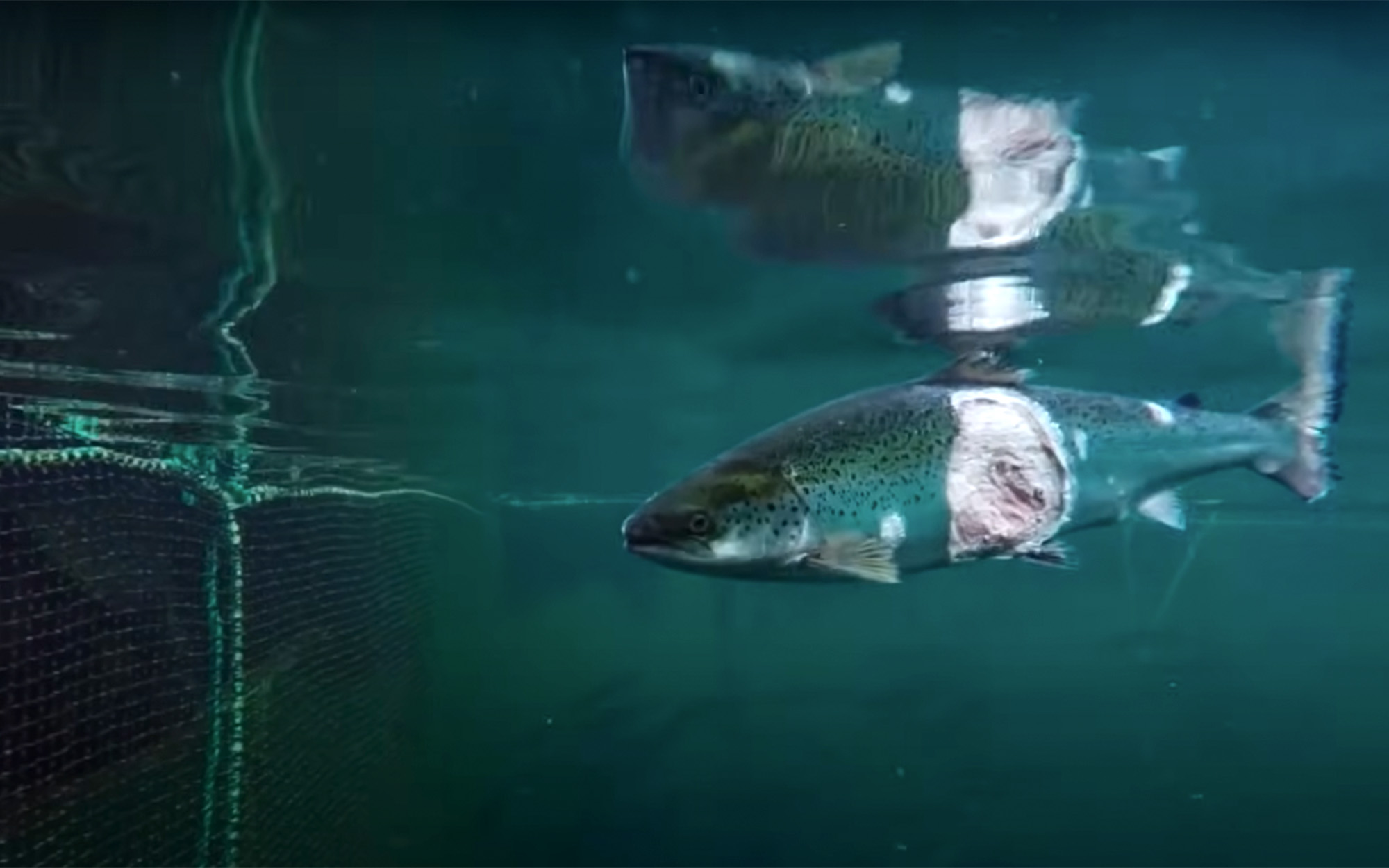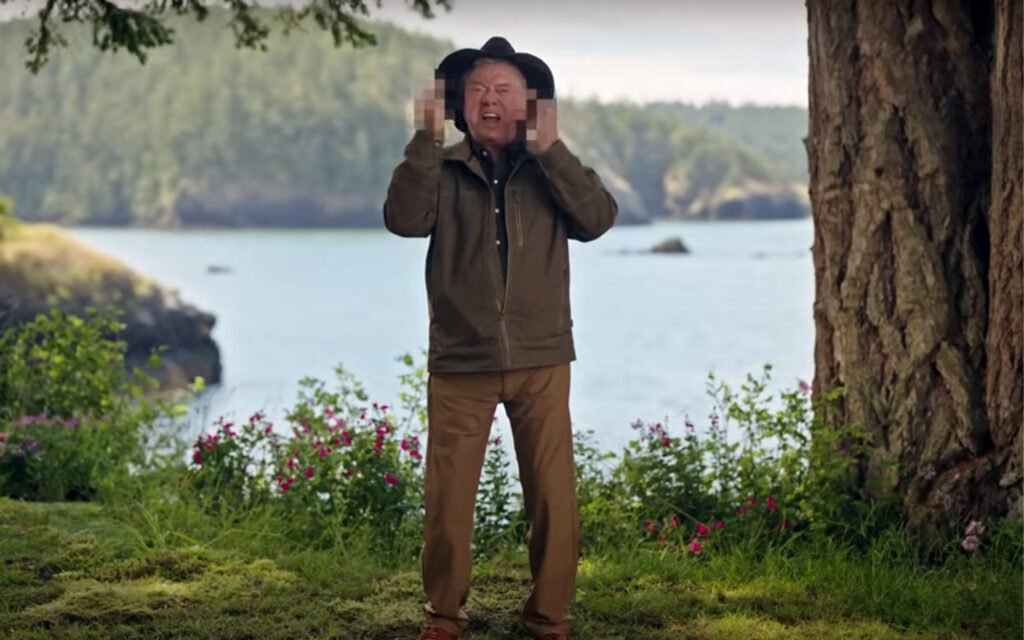William Shatner is getting some backlash for his function in a latest comedian commercial that slams open-net pen salmon farms and calls out the British Columbian authorities for approving a five-year extension on the farms presently working off the B.C. coast. In an announcement shared with the Mission City Record, the Coalition of First Nations for Finfish Stewardship demanded an apology from the veteran actor, who they are saying “attacked their dignity” and disrespected their long-held function as stewards of their native lands and waters. The spat additionally will get on the bigger controversy over ocean-based salmon farming practices, with loads of analysis exhibiting that these farms are dangerous for wild salmon.
The First Nations group stated it was much more disillusioned in Ryan Reynolds for his function within the advert, though it’s unclear what that function is. Reynolds isn’t proven in a YouTube video of the advert, which was sponsored and paid for by Pacific Wild. Each actors are Canadian, with Shatner hailing from Montreal and Reynolds from Vancouver.
“Sadly this response from folks like Mr. Shatner and Mr. Reynolds is all-too-common in at present’s Canada,” the Coalition writes within the assertion. “It is a basic instance of wealthy, elite, eliminated, city white males overriding the desires of weak Indigenous communities, a reoccurring theme throughout the Liberal authorities and up to date selections made by politicians like Minister Wilkinson.”
These “latest selections” embrace a June 19 announcement by B.C. Fisheries Minister Diane Lebouthillier, which spoke to the federal government’s plan to take away all open-net pen salmon farms from coastal waters by 2029. As a part of that phase-out plan, nonetheless, the B.C. authorities accredited a five-year license extension for the open-net pen farms already in operation. This approval is what led Pacific Wild to create the controversial advert within the first place.
Within the video, Shatner bashes open-net pen salmon farms in probably the most un-Canadian manner potential: by launching right into a profanity-laced tirade towards the farmers and those that help them.
“Once I see what open-net pen salmon farming is doing to the surroundings and wildlife, I simply can’t be Canadian aboot it any longer! So, repeat after me,” says a 93-year-old Shatner, within the closely beeped video. “Fuck off, open-net pen salmon farms! Your asshole salmon farms are fucking up our wild salmon populations! It’s a shit stain on our nation!”
Shatner then calls on different Canadians to do the identical, and he cheers on their creatively-worded insults. Hockey legend and Ontario native Kirk McClain is featured within the advert, as is a roaring black bear. At one level within the video, a child in a stroller even provides salmon farmers the finger.

Photograph through YouTube
The Coalition that took offense to the advert says it disregards the almost 700 Indigenous Canadians who work within the trade and the financial contributions that trade gives. The Coalition additionally factors out that human actions since colonization are the principle causes behind plummeting shares of untamed Pacific salmon, and that First Nations folks have needed to take up salmon farming simply to take care of some semblance of the useful resource.
It’s a good level. However there’s multiple approach to farm fish, and plentiful analysis exhibits that open-net pen salmon farming is unambiguously dangerous for wild salmon. (Some aquaculture exports are selling a shift to land-based salmon farms, and there are corporations in each Europe and the U.S. which might be growing new methods to do that.) The overwhelming majority of open-net pen farms in operation at present increase non-native Atlantic salmon, that are cooped up by the tens of hundreds in giant pens made from plastic netting. These floating feedlots generate huge quantities of concentrated waste that harm marine life, and so they’re hotbeds for parasites and ailments.
“Not like Las Vegas, what occurs in web pens doesn’t keep in web pens,” Dr. Lawrence Dill writes in a 2017 study that summarizes the dangers of open-net pen salmon farms to wild Pacific salmon. “Evidently the proof of threat to wild salmon is enough that the precautionary precept needs to be invoked, and Governments ought to mandate and help the aquaculture trade’s transfer from open-net pens to land-based closed containment manufacturing programs.”
Many farmed Atlantics change into bodily sick whereas within the pens, with crooked spines, blunted notes, broken otoliths (ear bones), and different deformities. Most of those fish are riddled with lice, and their survival charges are abysmal when in comparison with wild fish. And since these pens lie in the course of migration routes utilized by wild Pacific salmon, these illnesses can then be handed onto wild fish.
In a worst-case state of affairs, the farmed fish can escape their pens and work together with wild Pacific salmon to devastating impact. That is precisely what occurred off the coast of Washington State in August 2017, when greater than 300,000 farmed Atlantic salmon escaped into Puget Sound. The environmental catastrophe led to a ban on open-net pen farming in Washington waters, which introduced the state’s insurance policies in step with the remainder of the West Coast, because the observe was already banned in California, Oregon, and Alaska.
Learn Subsequent: Midwestern Fertilizer Spill Kills Nearly Every Single Fish in 60-Mile Stretch of River
A big section of Washington State’s Indigenous group additionally hailed the ban as a victory for wild salmon and steelhead conservation. This included the Swinomish Tribe and the Lummi Nation, the latter of which acquired greater than half one million {dollars} in damages from the aquaculture firm that allowed the 2017 breach to happen.
And as Pacific Wild points out, the First Nations folks of B.C. usually are not universally supportive of open-net pen salmon farming, both. The group says that together with roughly 70 % of all Canadians, greater than 120 First Nations in Canada help the elimination of open-net pen salmon farms. The Coalition of First Nations for Finfish Stewardship was not instantly accessible for remark, however based on the group’s website, it seems to incorporate members from 17 First Nations.
